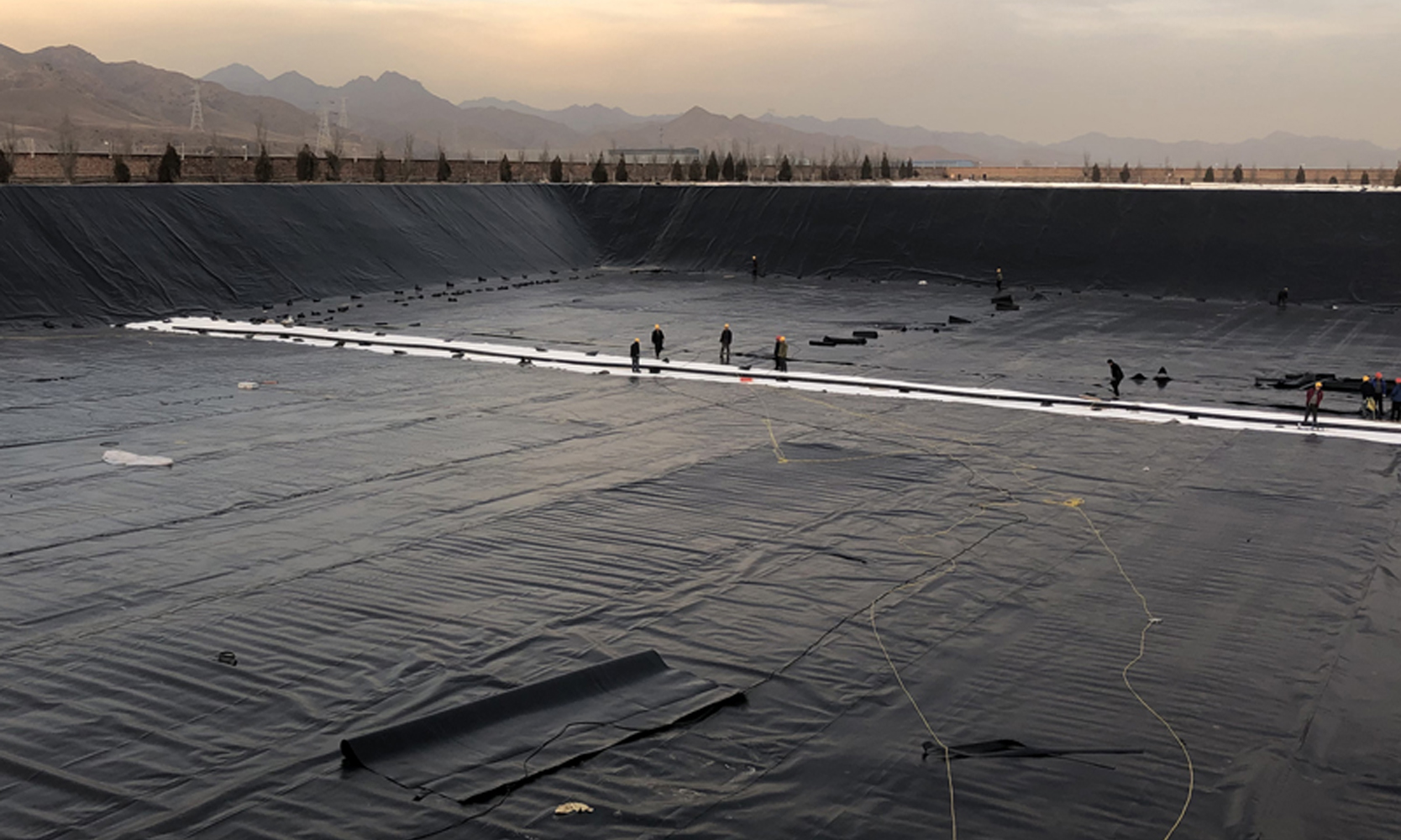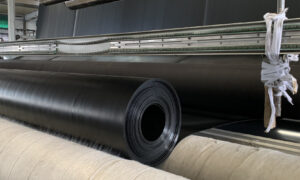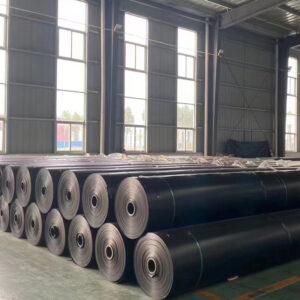
16 Dec What is a Geomembrane?
What is A Geomembrane?
Geomembrane is a thin film made of polymer that has the functions of waterproofing, anti-penetration, isolation and protection. It is usually used in civil engineering, water conservancy engineering, environmental protection engineering and other fields.
Application scope of geomembrane:
1. Water conservancy projects: In water conservancy projects such as reservoirs, dams, and channels, geomembranes can be used to prevent water leakage and erosion.
2. Environmental protection projects: In environmental protection projects such as landfills and sewage treatment plants, geomembranes can be used to prevent the leakage and spread of pollutants.
3. Civil engineering: In civil engineering projects such as roads, bridges, and tunnels, geomembranes can be used to prevent soil erosion and water penetration.
4. Mining engineering: In mining projects such as mines and stockyards, geomembranes can be used to prevent material leakage and pollution.
Advantages of Geomembrane
- High anti-seepage ratio:
Geomembrane has a great anti-seepage effect unmatched by ordinary waterproof materials, and is recommended in some projects with high anti-seepage requirements.It’s Permeability property is ≤1.0*10- 13gcm/(cm2spa). - Good chemical stability
It has excellent stability, acid and alkali resistance, salt solution, oil, alcohol, etc., and is mostly used in sewage treatment and landfills. - Aging resistance
Geomembrane has excellent anti-aging, anti-ultraviolet, anti-decomposition capabilities. Oven aging at 85ºC, standard OIT, 55% retained after 90 days, oven aging at 85ºC,high pressure OIT, 80% retained after 90 days. - Economy
Compared with other traditional materials, geomembrane has obvious cost advantages and is the best product for water storage and anti-seepage. - Easy to install
Compared with other traditional materials, geomembrane can be laid in a variety of forms to meet different construction requirements.
Geomembranes can be divided into the following categories according to their materials:
- High-density polyethylene (HDPE) geomembrane: has good anti-aging, anti-corrosion, and low-temperature resistance.
- Low-density polyethylene (LDPE) geomembrane: has good flexibility and impact resistance.

- Linear low-density polyethylene (LLDPE) geomembrane: has good tensile strength and puncture resistance.
- Polyvinyl chloride (PVC) geomembrane: has good chemical corrosion resistance.

Technical Data of Geomembrane
Our geomembranes are manufactured according to ASTM GM-13 and ASTM GM-17.
HDPE geomembrane can be divided into smooth surface and textured surface according to different surfaces. Of course, this represents different Technical Data. Similarly, LLDPE geomembrane also has the above two situations.
summary
Combined with the above description, we can see that there are many types of geomembranes, and it has a wide range of application fields. But how to choose the right geomembrane for your project is the top priority. There are many similarities in the production process of various types of geomembranes, but the properties and parameters of different types of geomembranes are different. As a geomembrane manufacturer from China, we have very rich production experience. Usually we provide customers with different geomembranes based on the actual conditions at the construction si.




No Comments